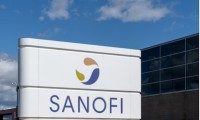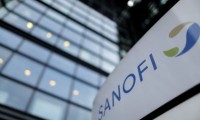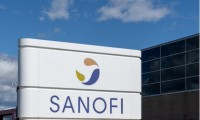-
Drug Licensed from Sanofi Becomes First FDA-Approved Therapy for Ultra-Rare Primary Immunodeficiency
- Source: https://medcitynews.com/author/fvinluan/
- 91
- May 4, 2024
-
Sanofi, Denali Neuro Drug Fails Mid-Stage Trial in ALS; MS Study Is Continuing
- Source: drugdu
- 149
- February 26, 2024
-
Sanofi’s investigational frexalimab shows promise in relapsing forms of MS
- Source: drugdu
- 103
- February 20, 2024
-
Regeneron and Sanofi’s Dupixent bags fifth drug label in Japan
- Source: drugdu
- 150
- February 19, 2024
-
Sanofi’s ‘SR604 Injection’ Approved in China, ‘Yipian Lida’ Supports Lipid Management with ‘Dual Standards’
- Source: drugdu
- 172
- January 1, 2024
-
Sanofi Abandons Deal for Rare Disease Drug Amid FTC’s Monopoly Concerns
- Source: drugdu
- 103
- December 15, 2023
-
After leak of neurotoxin, Sanofi plant in France is under scrutiny again
- Source: drugdu
- 102
- December 14, 2023
-
Sanofi’s quiet Sarclisa chalks up a first-in-class win with eyes on a first-line multiple myeloma nod
- Source: drugdu
- 104
- December 9, 2023
-
Sanofi/Regeneron’s Dupixent shows promise in chronic obstructive pulmonary disease
- Source: drugdu
- 106
- November 29, 2023
-
With filing in Sanofi and Mylan insulin lawsuit, FTC amps up scrutiny on pharma’s patent tactics
- Source: drugdu
- 101
- November 23, 2023
your submission has already been received.
OK
Subscribe
Please enter a valid Email address!
Submit
The most relevant industry news & insight will be sent to you every two weeks.













